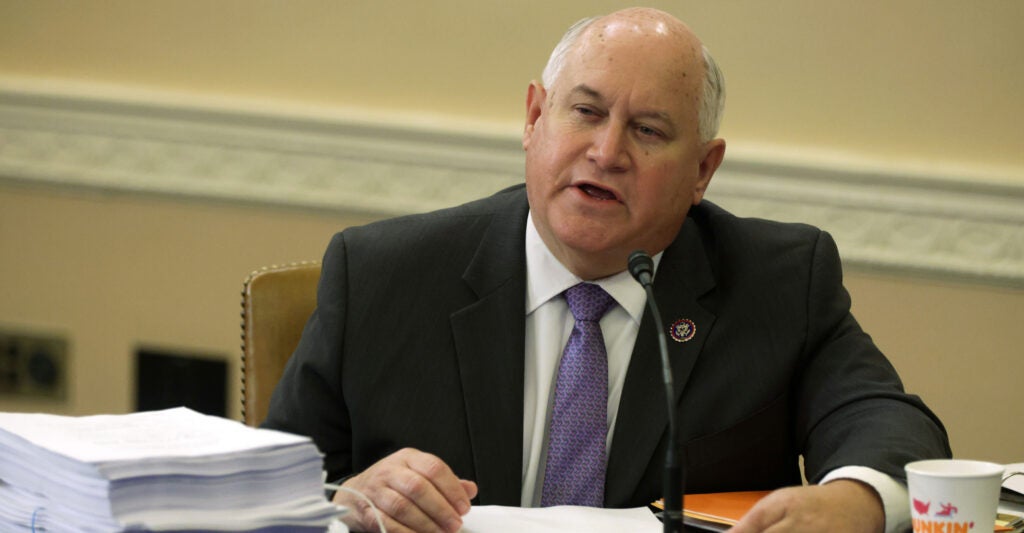When Washington Spends, You’re on the Hook. You Deserve to Know for How Much.
Rep. Ron Estes /
Maybe you’ve heard that our national debt has topped $34.7 trillion. But what does that really mean for you and your family?
The number is somewhat incomprehensible. To spell it out, that’s thirty-four trillion, seven hundred and twenty-five billion, eight hundred and fifty million, three hundred and twenty-three thousand, six hundred and eight dollars.
That number is 14 digits long, and it grows by about $100,000 every second.
If our national debt were printed in one-dollar bills, you could make 10 stacks of bills from the earth to the moon. If our national debt were in seconds, it would equate to 1,095,641 years. According to the National Geophysical Data Center, there are just over 321 million cubic miles of water in all of the Earth’s oceans. If the national debt were cubic miles of water, we could fill our oceans 107,638 times.
Our debt is massive, but not enough lawmakers are concerned about the growing problem. Nor are enough Americans holding their elected officials accountable.
When Washington bureaucrats talk about spending, it can be easy for them to simply forget how massive the numbers really are, and the people it impacts.
As far back as the 1960s, then-Sen. Everett Dirksen, R-Ill., reportedly said, “A billion here, a billion there, and pretty soon you’re talking real money.” When we discuss budgets and appropriations bills, some members of the House and Senate gloss over the numerous zeros appearing at the end of the numbers, and that disregard for fiscal restraint has put our country in fiscal peril.
But we are talking about real money—the American people’s money—and they deserve to know just how bad this is in the hopes that they will then demand more restraint from their elected officials.

Rep. Ron Estes, R-Kansas, speaks at a Sept. 14, 2021, House Ways And Means Committee hearing on its markup of Democrats’ $3.5 trillion spending package. (Alex Wong/Getty Images)
As a member of Congress, I make it a point to discuss our growing debt problem with the Kansans I represent nearly every chance I get. I’ve included it in newsletters, mailers, social media posts, and interviews because I believe everyone should know just how dire our fiscal situation is.
In order to change our dangerous trajectory, we need more taxpayers to be knowledgeable about how this crisis is affecting them.
In May, House Budget Committee Chairman Rep. Jodey Arrington, R-Texas, and I introduced legislation informing taxpayers of their share of the national debt, which is now more than $200,000 per taxpayer.
The Debt Per Taxpayer Information Act would show the true cost to our country by requiring the IRS to display the total federal government revenue, outlays, and deficit; the total gross federal debt; and an estimate of the debt for taxpayers on their annual W-2 tax forms.
The Debt Per Taxpayer Information Act passed out of the Budget Committee 21 to 4. It’s encouraging that a bipartisan majority recognizes the value of bringing transparency to the problem and making more Americans aware of Washington’s spending, deficits, and debt—and their share of the problem.
Our country is better when we have an informed electorate. Providing this additional information to taxpayers will help them understand our dire situation and, hopefully, keep their representatives accountable.
We publish a variety of perspectives. Nothing written here is to be construed as representing the views of The Daily Signal.
